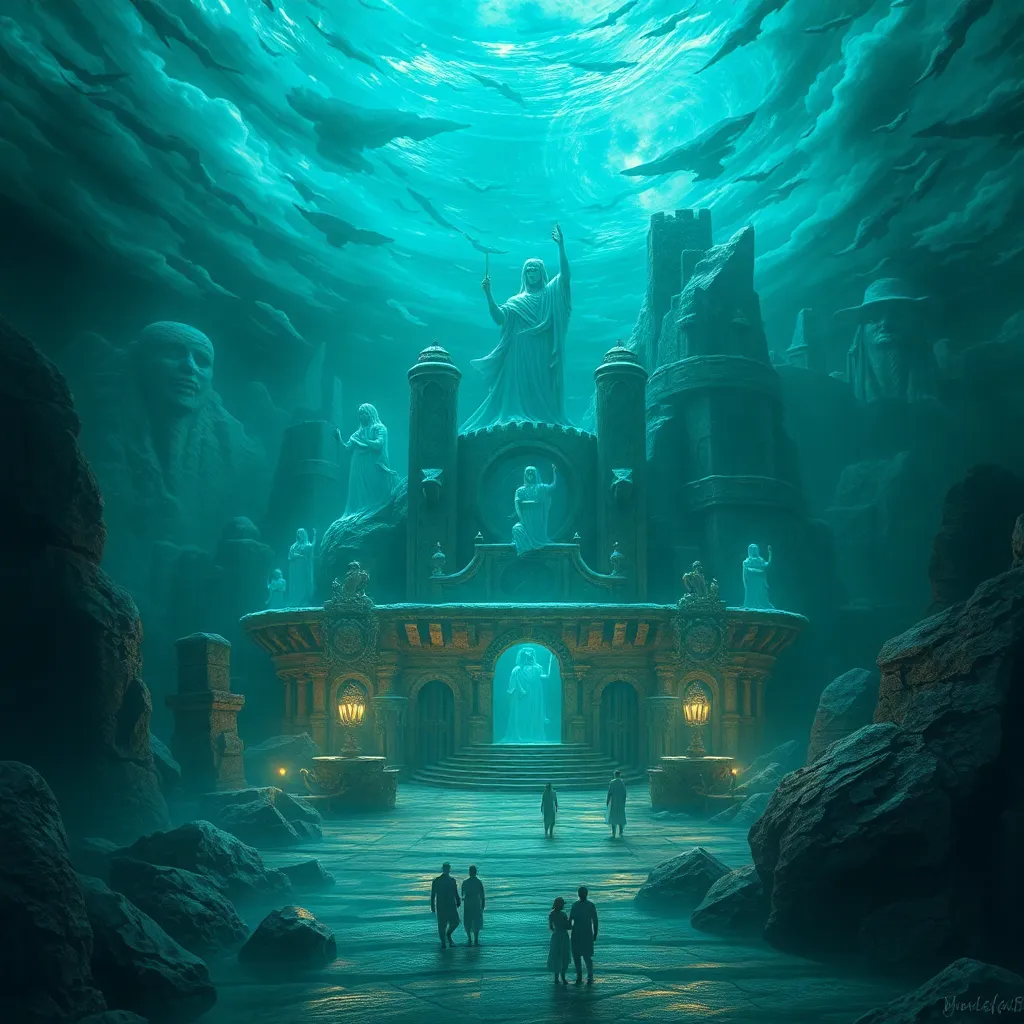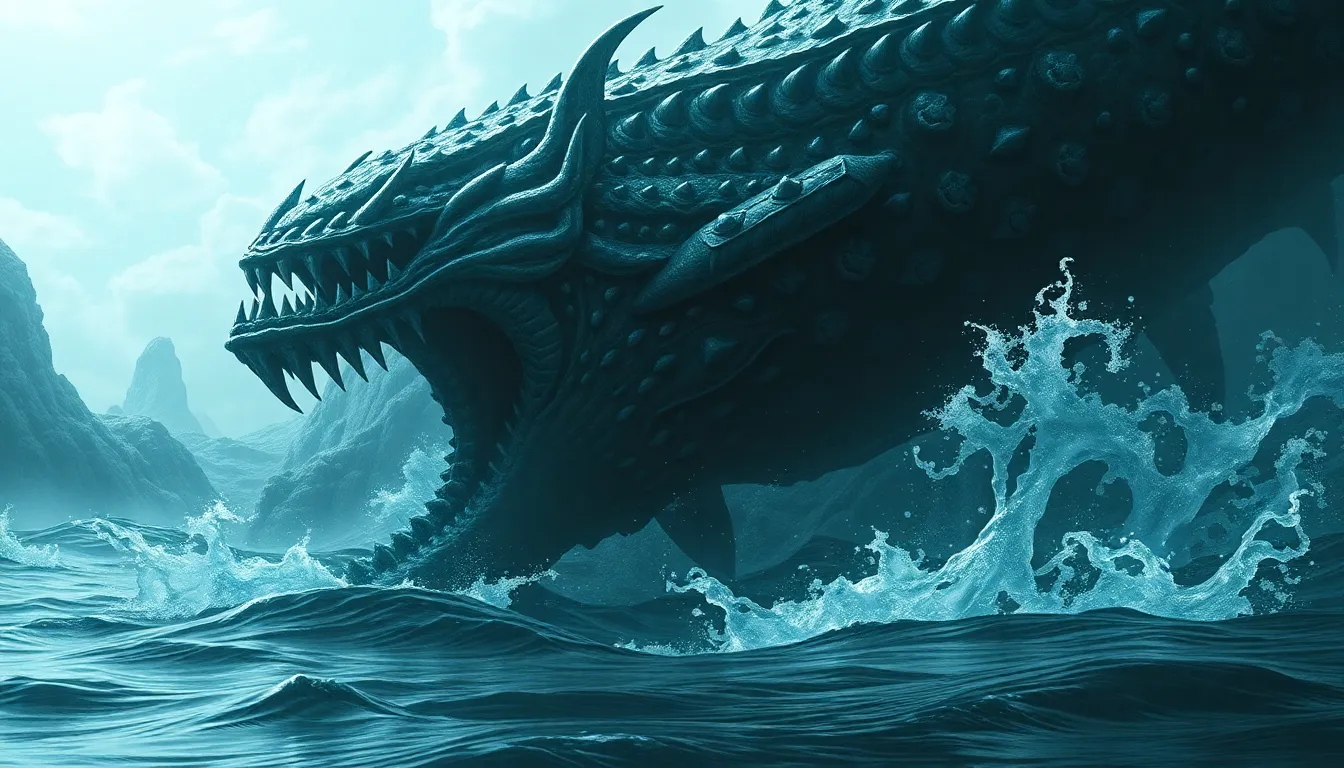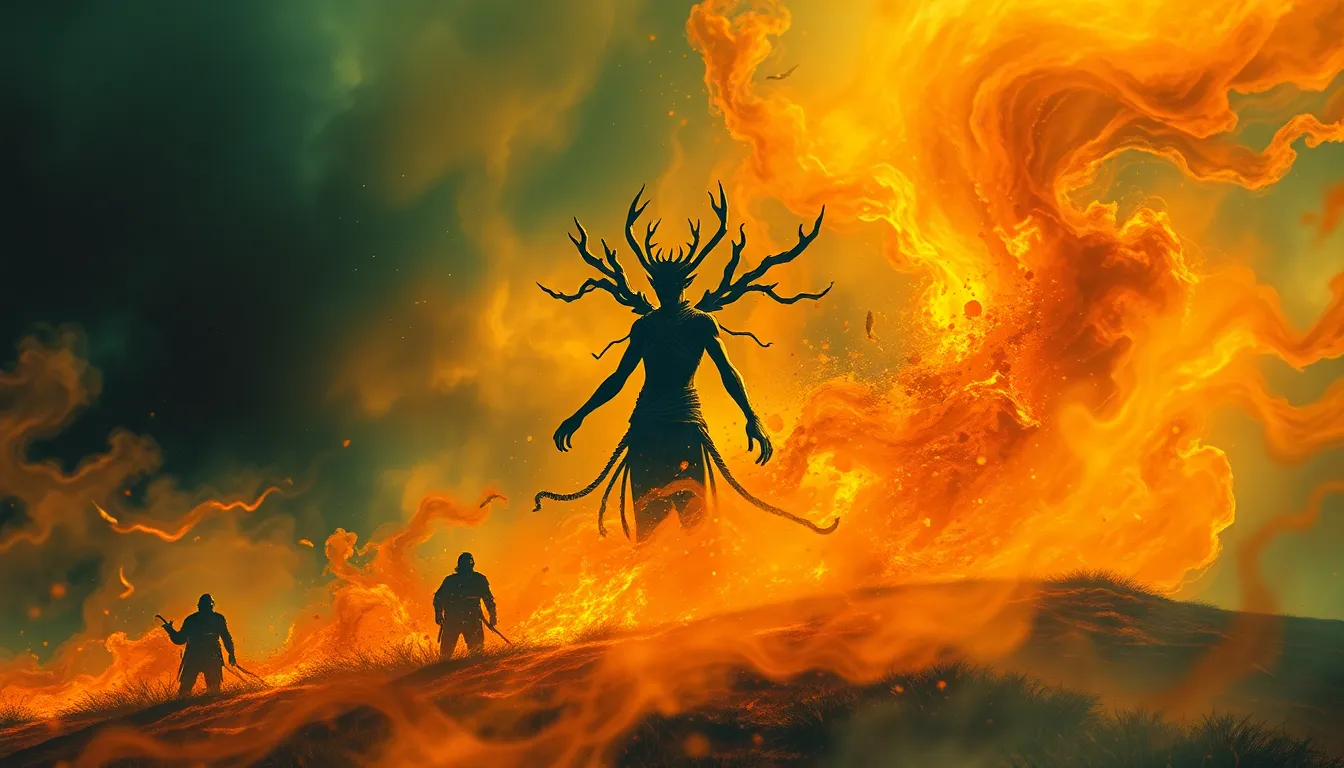The Ghosts of the Lost City of Atlantis: Exploring the Mythology
I. Introduction to Atlantis
The tale of Atlantis has captivated the human imagination for centuries. Often described as an advanced civilization that mysteriously vanished beneath the waves, Atlantis serves as a rich tapestry of myth and legend. From the grandeur of its cities to the wisdom of its people, the story of Atlantis continues to inspire countless interpretations and explorations.
The origins of the Atlantis myth can be traced back to the works of the ancient Greek philosopher Plato. In his dialogues, he presents Atlantis as a powerful empire that existed over 11,000 years ago. With its sudden disappearance, Atlantis has become a symbol of mystery and intrigue throughout history.
In popular culture, Atlantis has become synonymous with lost civilizations and serves as a metaphor for humanity’s relationship with nature, technology, and morality. It invites questions about the fragility of human achievement and the potential consequences of hubris.
II. The Ancient Sources of the Atlantis Legend
The primary source of the Atlantis legend comes from Plato’s dialogues, specifically “Timaeus” and “Critias.” In these texts, Plato describes Atlantis as a powerful island nation located beyond the “Pillars of Hercules,” which corresponds to the modern-day Strait of Gibraltar. He characterizes the Atlanteans as a noble and advanced people who eventually fell into moral decay.
Ancient scholars have debated the interpretations of these texts for centuries. Some view Plato’s account as a historical record, while others argue it is merely an allegorical tale meant to convey philosophical lessons. The duality of these interpretations has fueled further exploration and speculation regarding the existence of Atlantis.
Later writers and historians, such as Pliny the Elder and Diodorus Siculus, have referenced Atlantis in their works, cementing its place in the historical narrative. The legend has since influenced a variety of literary and philosophical works throughout the ages.
III. Theories Behind the Existence of Atlantis
Throughout history, various theories have emerged regarding the potential existence of Atlantis. While some claim it was a real place, others suggest it might be a mythological construct.
A. Archaeological evidence and explorations
- Some archaeologists have proposed locations such as the Santorini island in Greece or the Azores as possible remnants of Atlantis.
- Underwater explorations in places like the Caribbean and the Mediterranean have yielded structures that some believe could belong to the lost city.
B. Geological theories and natural disasters
- Geologists have pointed to volcanic eruptions, tsunamis, and other natural disasters that could explain the disappearance of an advanced civilization.
- For instance, the eruption of the Thera volcano and the subsequent tsunami is often cited as a possible historical event that mirrors the Atlantis narrative.
C. Alternative theories: myths, allegories, and moral tales
- Some scholars argue that Atlantis is a myth, representing the archetype of lost civilizations that serves as a cautionary tale about human excess and moral decay.
- Plato’s narrative is often viewed as an allegory for his philosophical views on society and governance.
IV. The Symbolism of Atlantis in Mythology
The myth of Atlantis is rich with symbolism that resonates with various themes in mythology and literature.
A. Atlantis as a symbol of lost civilization
Atlantis represents the ideal of a lost civilization that achieved great heights of cultural and technological advancement, only to succumb to its own flaws. This theme evokes a sense of nostalgia and a longing for a time when humanity lived in harmony with nature.
B. Themes of hubris and downfall
The story of Atlantis also serves as a potent reminder of the dangers of hubris. The Atlanteans’ pride and moral decline ultimately led to their downfall, which can be seen as a reflection on the human condition and the consequences of overreaching ambition.
C. The notion of utopia and its pitfalls
As a narrative of an ideal society, Atlantis encapsulates the notion of utopia. However, it also highlights the inherent pitfalls of striving for perfection. The demise of Atlantis serves as a warning against the dangers of idealism untempered by realism.
V. The Ghosts of Atlantis: Legends and Folklore
The legacy of Atlantis has transcended its original narrative, leading to various folkloric representations of its spirits and ghosts.
A. Folkloric representations of Atlantean spirits
Throughout history, tales of the spirits of Atlantis have emerged, often depicting them as guardians of knowledge and wisdom. These tales suggest that the souls of the Atlanteans linger, watching over humanity.
B. Modern ghost stories linked to Atlantis
In contemporary folklore, ghost stories related to Atlantis often involve encounters with ethereal beings or visions of the lost city. These narratives reflect the ongoing fascination with what Atlantis may have once been.
C. The role of Atlantis in contemporary paranormal investigations
Atlantis has become a focal point in many paranormal investigations. Numerous enthusiasts and researchers seek to uncover the truth behind the myth, often exploring underwater locations and ancient ruins in hopes of finding evidence of the lost civilization.
VI. Atlantis in Modern Literature and Media
In recent years, the legend of Atlantis has found a prominent place in modern literature and media.
A. Depictions in novels, films, and video games
- Novels such as “The Lost City of Atlantis” and films like Disney’s “Atlantis: The Lost Empire” have popularized the myth for new generations.
- Video games, including the “Assassin’s Creed” series, have also incorporated Atlantis, allowing players to explore its mysteries.
B. The impact of Atlantis on science fiction and fantasy genres
Atlantis has inspired numerous works in the science fiction and fantasy genres, often serving as a backdrop for stories about advanced technologies, ancient magic, and epic quests.
C. How modern interpretations shape public perception
Modern adaptations and interpretations of Atlantis often blend the lines between fact and fiction, shaping public perception of the legend. The portrayal of Atlantis as both a cautionary tale and an object of fascination continues to evolve.
VII. The Continuing Fascination with Atlantis
The allure of Atlantis remains strong in the 21st century, with ongoing interest in its myth and legacy.
A. Atlantis-related tourism and exploration
- Various locations around the world have embraced the Atlantis narrative, promoting tourism through tours and exhibitions related to the lost city.
- Underwater archaeology expeditions continue to seek out possible remnants that could be linked to Atlantis.
B. The role of conspiracy theories and pseudoscience
Conspiracy theories surrounding Atlantis have proliferated, often linking it to ancient aliens or advanced technologies. These narratives, while lacking scientific backing, continue to capture the imagination of many.
C. The cultural legacy of Atlantis in the 21st century
Atlantis serves as a cultural touchstone, influencing art, literature, and philosophy. Its enduring themes of loss, ambition, and the quest for knowledge resonate deeply with contemporary audiences.
VIII. Conclusion: The Enduring Mystery of Atlantis
In summary, the myth of Atlantis remains a significant part of our cultural heritage. Its story transcends time, inviting exploration and interpretation from various perspectives. The fascination with lost worlds reflects humanity’s desire to connect with our past and understand our place in the universe.
As we ponder the mysteries of Atlantis, we are reminded of our shared longing for knowledge and the timeless pursuit of lost civilizations. The allure of Atlantis persists, whispering to us through the ages, inviting us to uncover its secrets and learn from its legacy.



